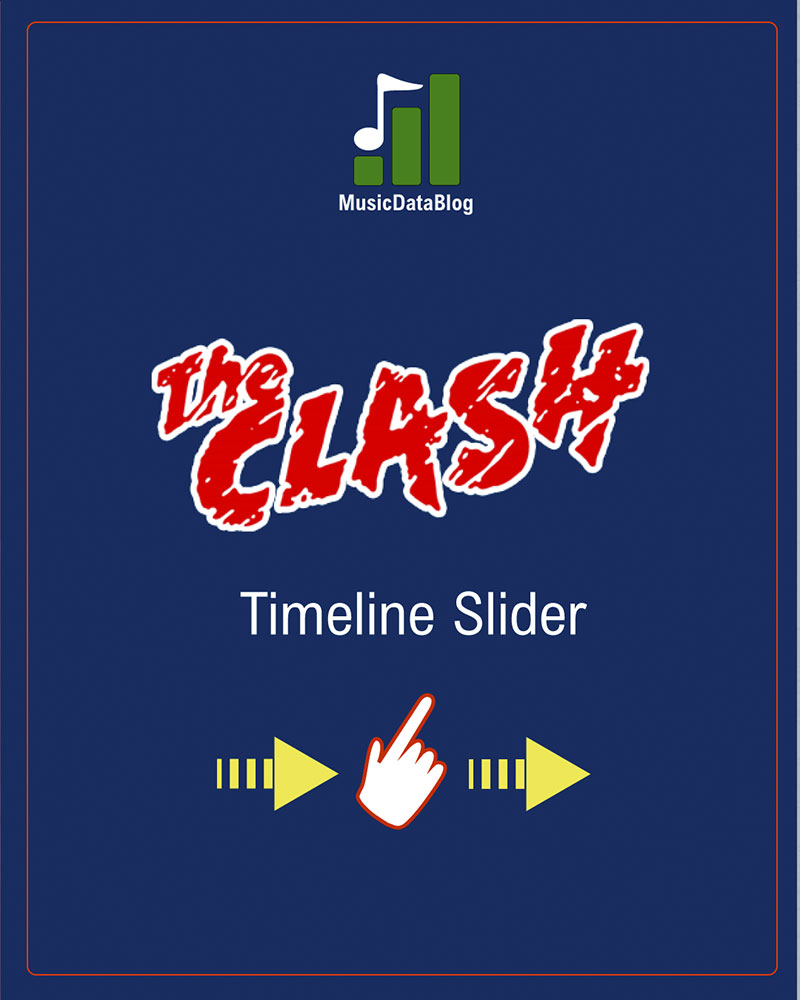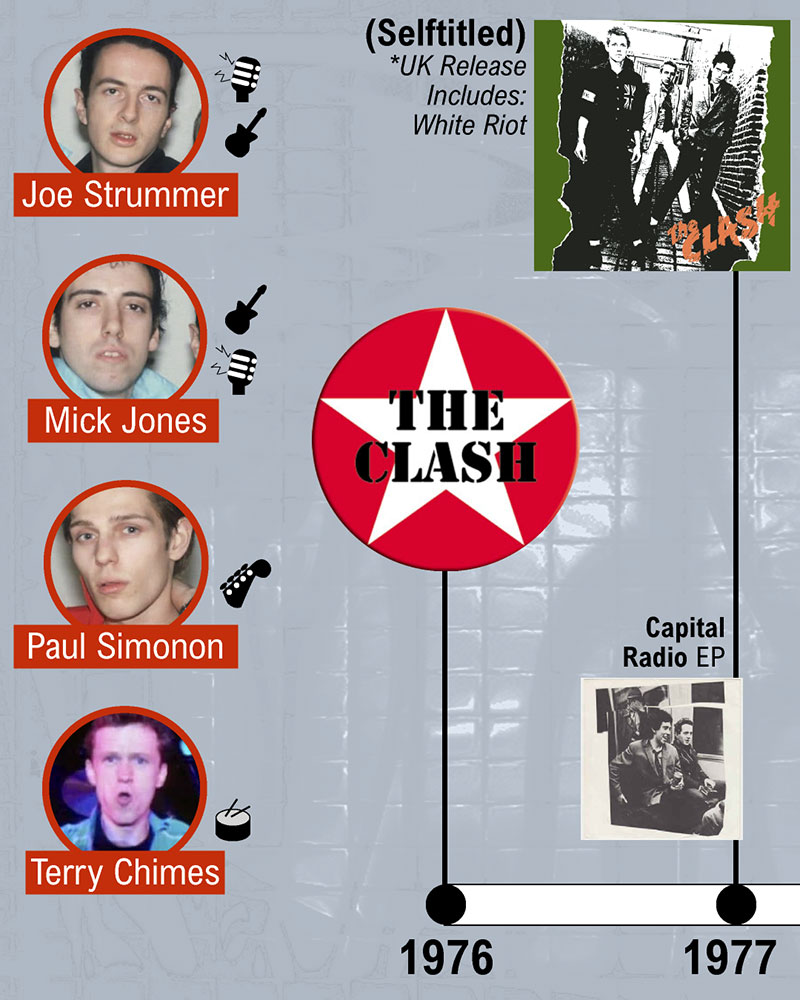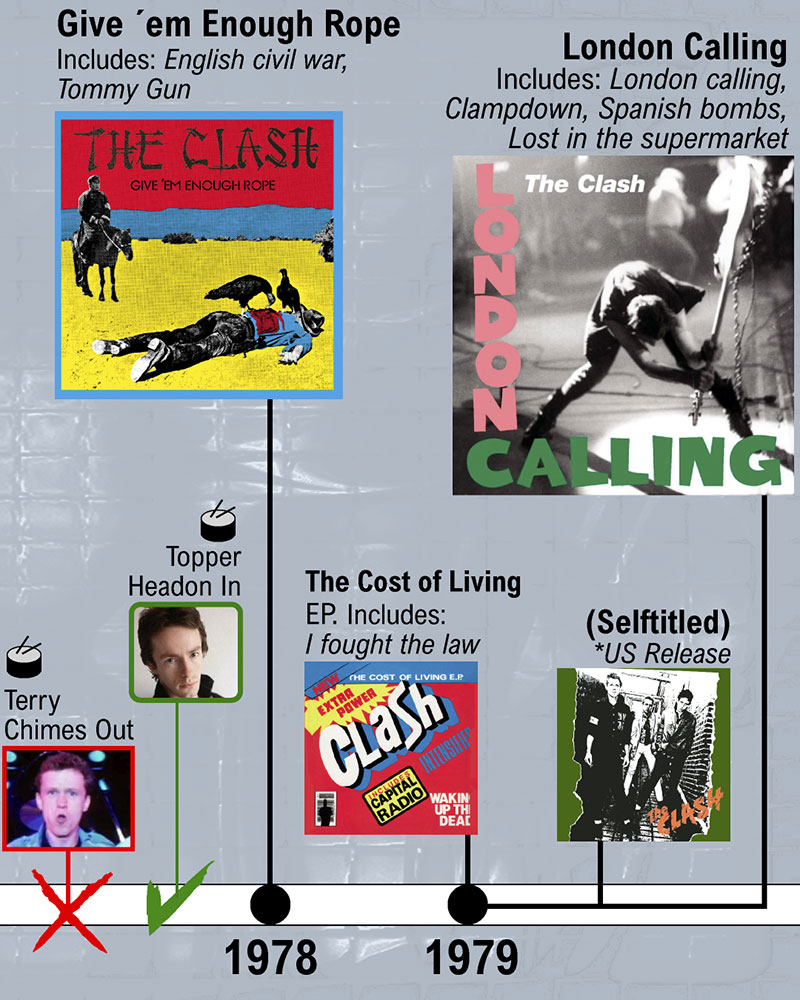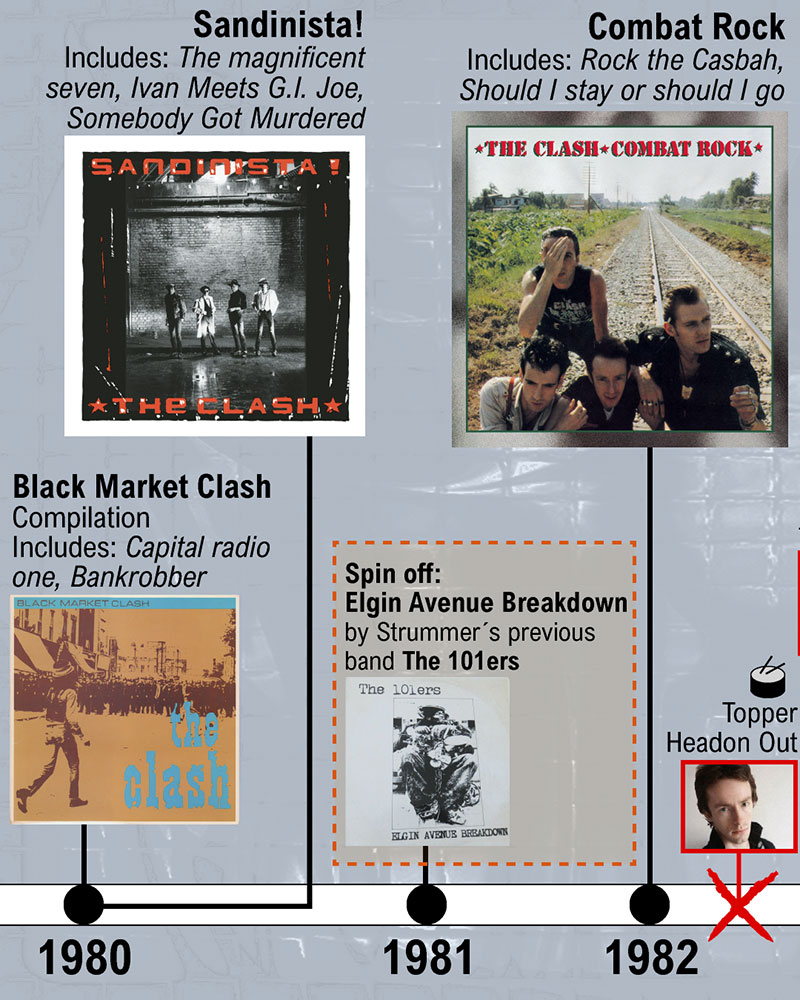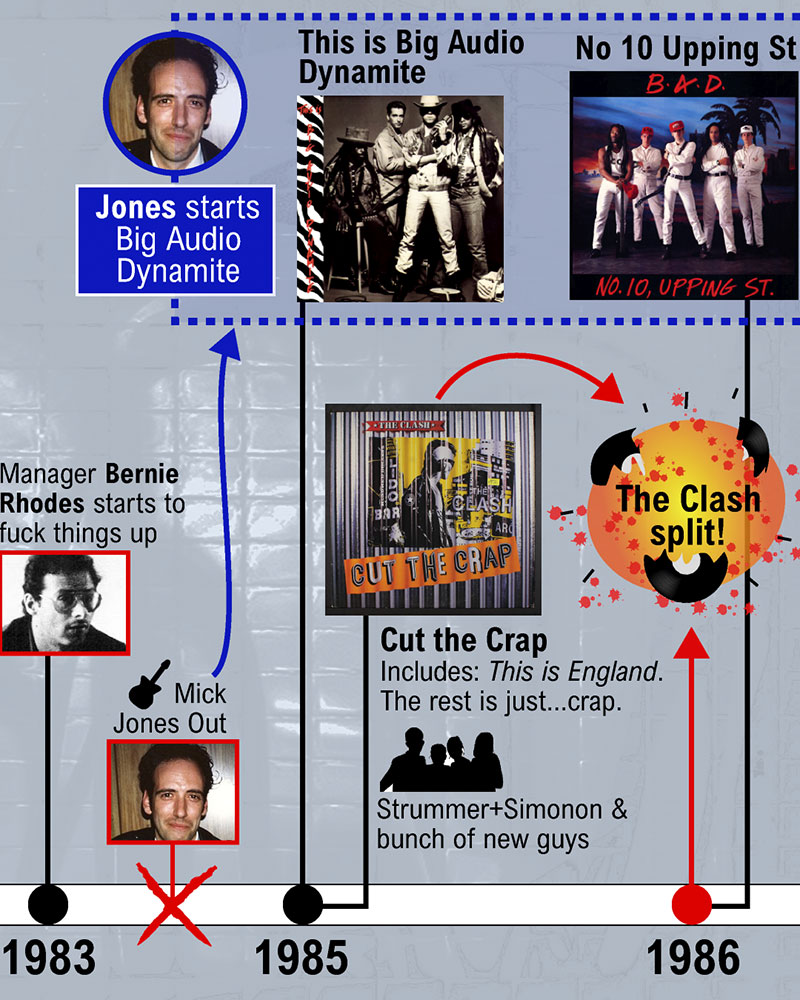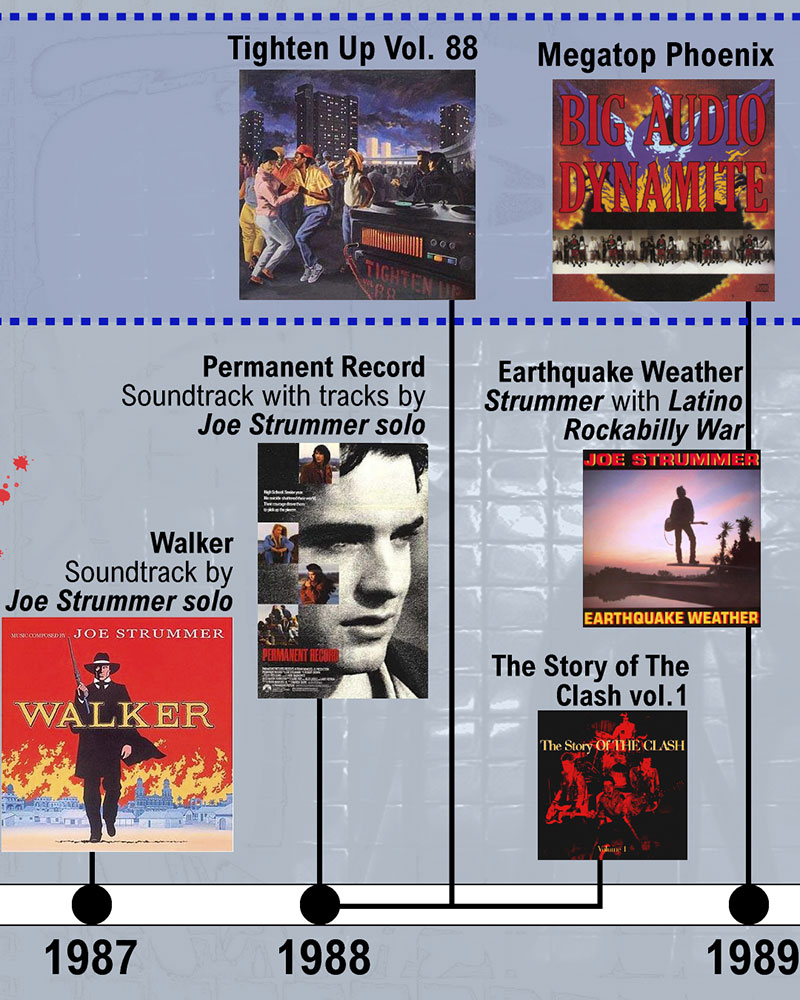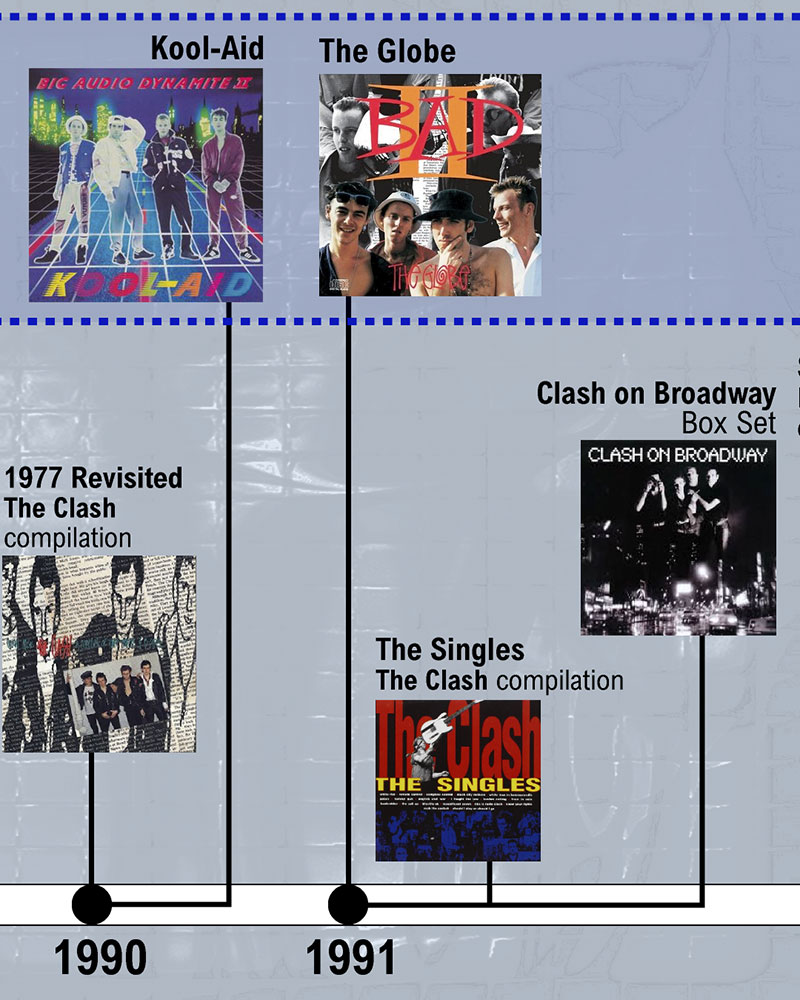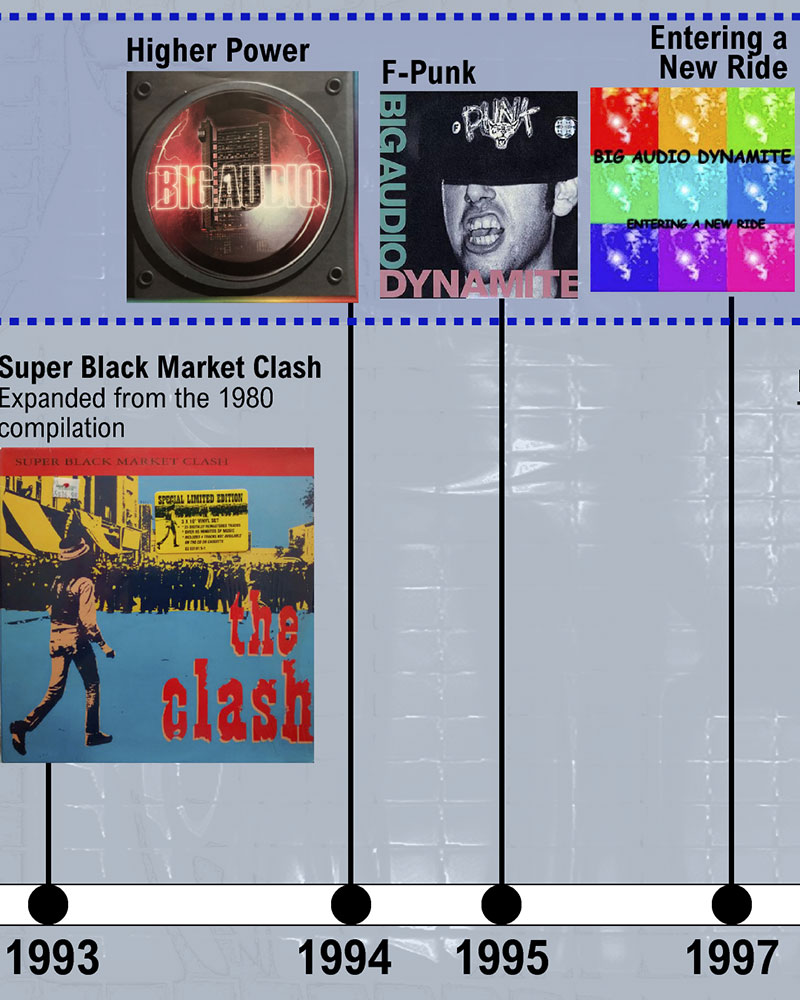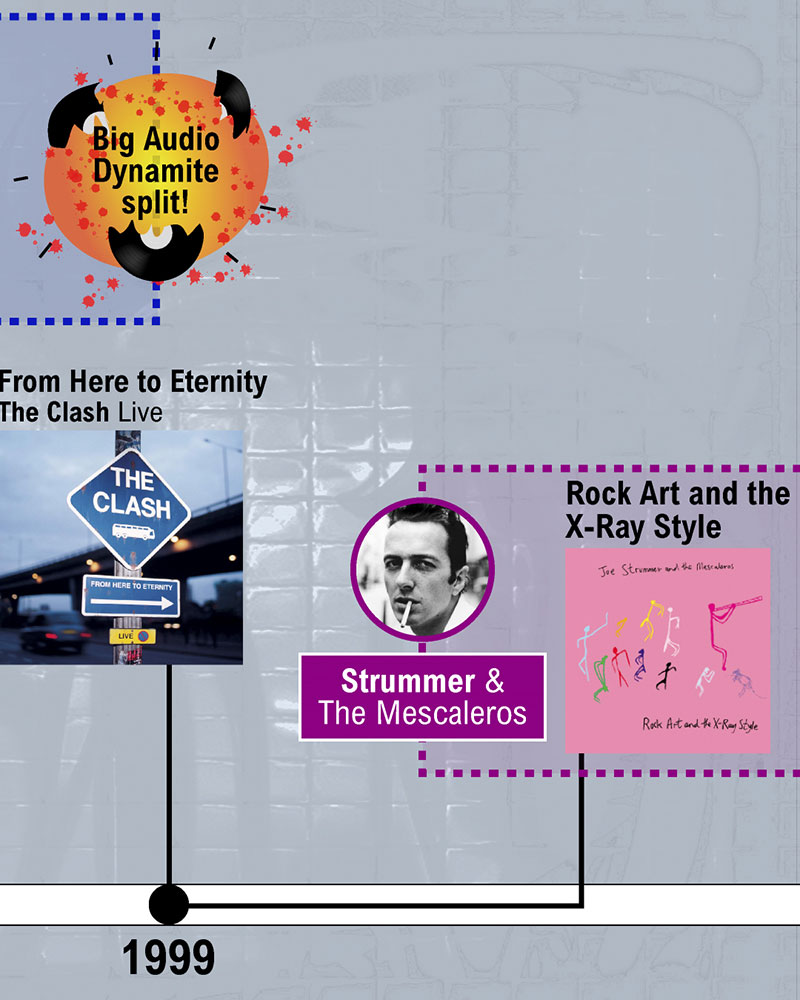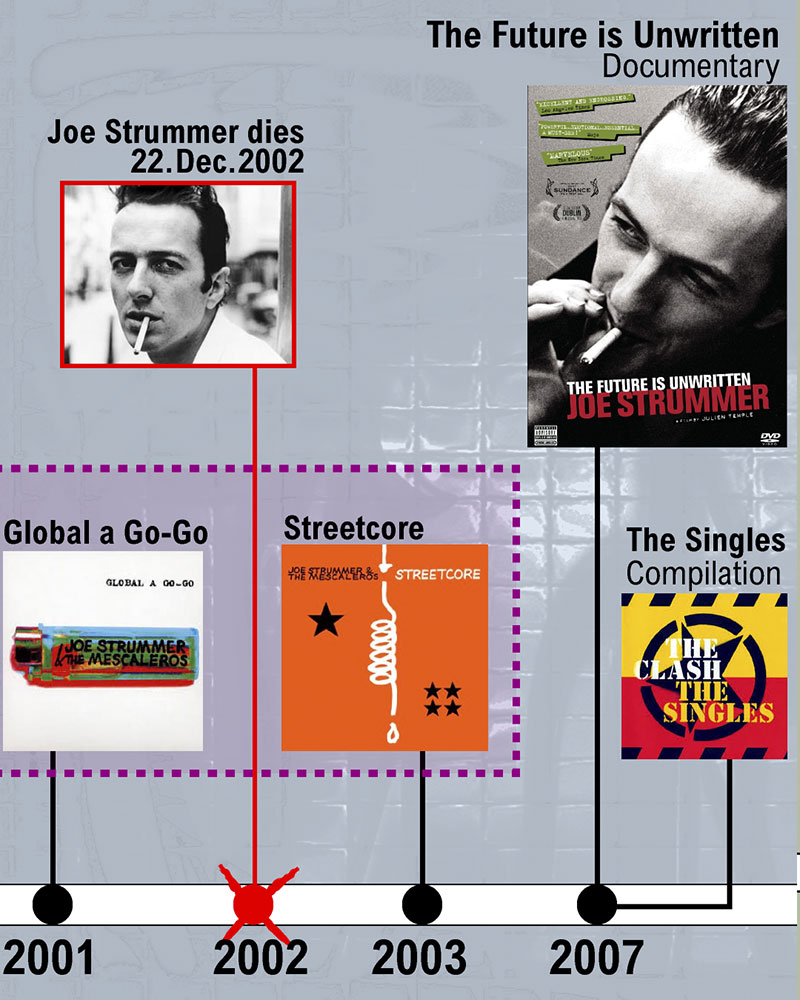The timeline below shows the history of The Clash, one of the most relevant bands to come out of the British punk movement in the seventies. Swipe throughout Joe Strummer’s punk group chronology below:
With six studio albums released during their whole career, the band was led by Joe Strummer (vocals, guitar). Their most successful lineup also featured Topper Headon on drums, Paul Simonon on bass, and Mick Jones on guitar and backing vocals.
During most of their career, The Clash enjoyed significant success thanks to their innovative and experimental approach to music, which expanded their punk rock roots.
This short visual history also includes other different projects in which some of The Clash’s band members were involved. After leaving The Clash, Mick Jones led the band Big Audio Dynamite, which remained active between 1985 and 1999. On his side, Joe Strummer & The Mescaleros began their short activity starting in 1999 and until Joe’s death in 2002.
A summarized version of the history of The Clash
The story starts in London, England, in the year 1976, when one of punk’s architects, manager Bernie Rhodes, brought Joe Strummer together with Paul Simonon and Mick Jones to form a band. With the assistance of drummer Terry Chimes, in 1977 they recorded their self-titled debut album, which includes the single White riot.
Quickly after releasing their first album, they recruited a new drummer, the extremely talented Topper Headon. During that period, one of The Clash’s best-known songs was their cover of the song I fought the law, which appeared on the 1978 EP The Cost of Living, and also was featured on the North American reissue of their debut album. That same year they released their second LP, Give ’em Enough Rope, which had a more mainstream sound. It included the single Tommy gun.
In 1979 they reissued their debut The Clash in the United States, and towards the end of that year, they released their landmark album, London Calling. This is a double album that includes the classic single of the same name, as well as other great songs, such as Clampdown, Lost In The Supermarket, and Train In Vain among several others. London Calling meant a stylistic shift towards other musical genres, such as rockabilly and reggae.
In 1980 The Clash released their rarities compilation Black Market Clash, which also was reissued in 1993 as an expanded form, retitled Super Black Market Clash. Also in 1980, they released the follow-up to London Calling: Sandinista!, This album was even more disruptive and experimental, being a triple album that features the influence of various music styles such as pop, dub, rap, and soul.
In 1982 The Clash enjoyed what many consider to be the peak of their career, with the release of their fourth album, Combat Rock. This album achieved massive success in the United States, especially with the singles Rock the Casbah and Should I Stay or Should I Go.
Unfortunately for The Clash, internal conflicts were already present between its members, specifically between Mick Jones and Joe Strummer. Also, manager Bernie Rhodes began to have too much influence on the band, something that did not help the situation.
In spite of 1982 being a really successful year for The Clash, it was also when things started to fall apart for them. Drummer Topper Headon was fired from the band. The following year, in 1983, Joe Strummer’s main songwriting partner, Mick Jones, was also fired. With only Strummer and Paul Simonon as remaining members, the band recruited new musicians and recorded The Clash’s final album, Cut the Crap. Regarded as their worst album, it only features one single: This is England.
In 1986 The Clash, one of the most important bands in the punk movement, finally disbanded.
The year before, in 1985, Mick Jones had formed his own alternative project, Big Audio Dynamite. He recorded nine studio albums with the band and enjoyed some considerable success.
On his side, Joe Strummer suffered from a lack of artistic and personal direction after his years with The Clash. It was not until 1999 that he formed a new band, Joe Strummer & The Mescaleros, with whom he released two albums before dying in 2002.
The Clash Discography
During their existence, The Clash recorded six studio albums. In this list we also include one relevant compilation album.
- The Clash (1977)
- Give ´em Enough Rope (1978)
- London Calling (1979)
- Black Market Clash (1980) / Super Black Market Clash (1993) (compilation)
- Sandinista! (1980)
- Combat Rock (1982)
- Cut the Crap (1985)

